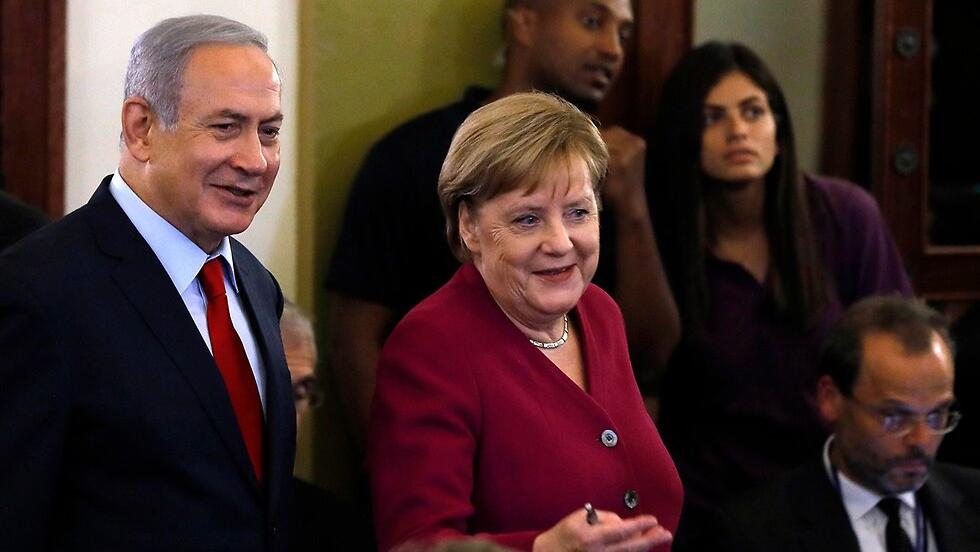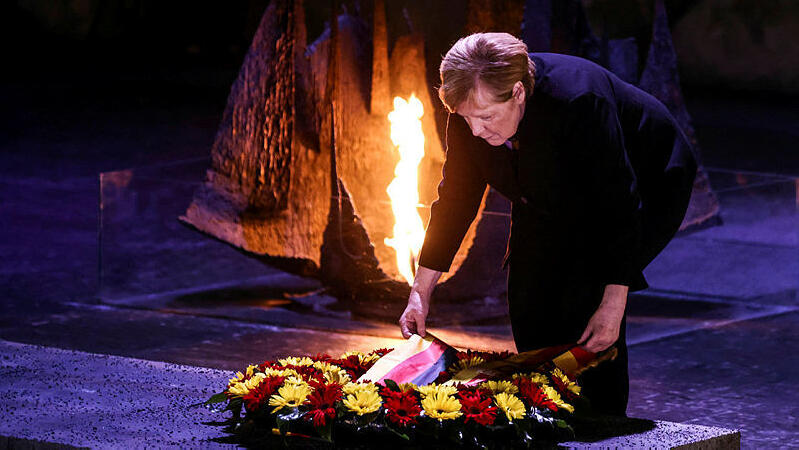Getting your Trinity Audio player ready...
Angela Merkel says Prime Minister Benjamin Netanyahu systematically undermined the possibility of a two-state solution by encouraging the settlement enterprise. "We agreed to disagree," Merkel, the former German Chancellor, writes in a memoir out on Tuesday.
The book has aroused great interest since it is seen as a "letter of defense" to claims that arose after the end of her term in 2021, centering around her responsibility for the immigrant crisis and dependence on Russian gas.
In the book, Merkel not only answers these claims, but briefly deals with Israel and its leaders, and alongside the strong support she emphasizes for Israel and its right to defend itself - especially after the October 7 massacre. she wrote that, unlike Netanyahu, she personally liked his predecessor Ehud Olmert because she could talk to him directly and openly, even about explosive problems and issues such as the Palestinian conflict.
In the chapters where Merkel touches on her relationship with Netanyahu, nearly forgets her German composure and accuses him of being someone whose policies sabotaged the possibility of resolving the Middle East conflict.
Merkel's attitude toward Israel is much more sympathetic. She recalls her first visit to Israel as a government minister in 1991, shortly after the reunification of Germany. According to Merkel, Israel had a great academic reputation in East Germany, despite the isolation in the communist country where she grew up and lived until reunification. The visit came after years of indirect contact between Merkel and Israel: she grew up in East Germany, which did not have any relations or scientific ties with Israel, but for the purpose of her doctoral thesis in quantum chemistry she was helped by the works and studies of Israeli researchers and scientists, which were sent to her by American and British researchers.
Merkel also discusses her last visit to Israel, 30 years after the first - and after she had already announced that she would step down as chancellor. It was a farewell visit where she met with then-Prime Minister Naftali Bennett. and made sure to visit the Yad Vashem Holocaust memorial.
The most memorable visit for Merkel was in 2008, during the celebrations for the 60th year of the establishment of Israel. Merkel then gave a historic speech in the Knesset plenum, a speech which she began in Hebrew saying that Israel's security is part of Germany's "raison d'etre" - a statement that became unofficial German policy in the region, and has been the basis of Berlin's support for Israel since the October 7 massacre.
Merkel points out that during that trip she visited the home of David Ben-Gurion in Sde Boker and told an inquisitive resident who wanted to know when she would return, "I like the way you live and I can see myself moving here when I am no longer chancellor." She writes that she was serious at the time but now doubts she would be able to.
Retrospective of Angela Merkel's 16 years as German chancellor
(Video: Reuters)
Get the Ynetnews app on your smartphone: Google Play: https://bit.ly/4eJ37pE | Apple App Store: https://bit.ly/3ZL7iNv
In the book, Merkel presents for the first time a reference to the October 7 massacre. She says that Israel is the only democracy in the region and is under constant existential threat - and expresses surprise and astonishment that after the murderous terrorist attack, instead of receiving solidarity and empathy, Israel and Jews experienced a huge wave of antisemitism and hatred in Germany and many other countries.
She writes that she fully supports the right of citizens to demonstrate for the Palestinians and against the policies of Israel and Germany, but warns against abuse of the right to protest and freedom of speech. Everyone who lives in Germany, writes Merkel, is committed to its basic rules - including the fight against racism and antisemitism - and she says that action must be taken against those who do not meet this commitment by all possible means.







